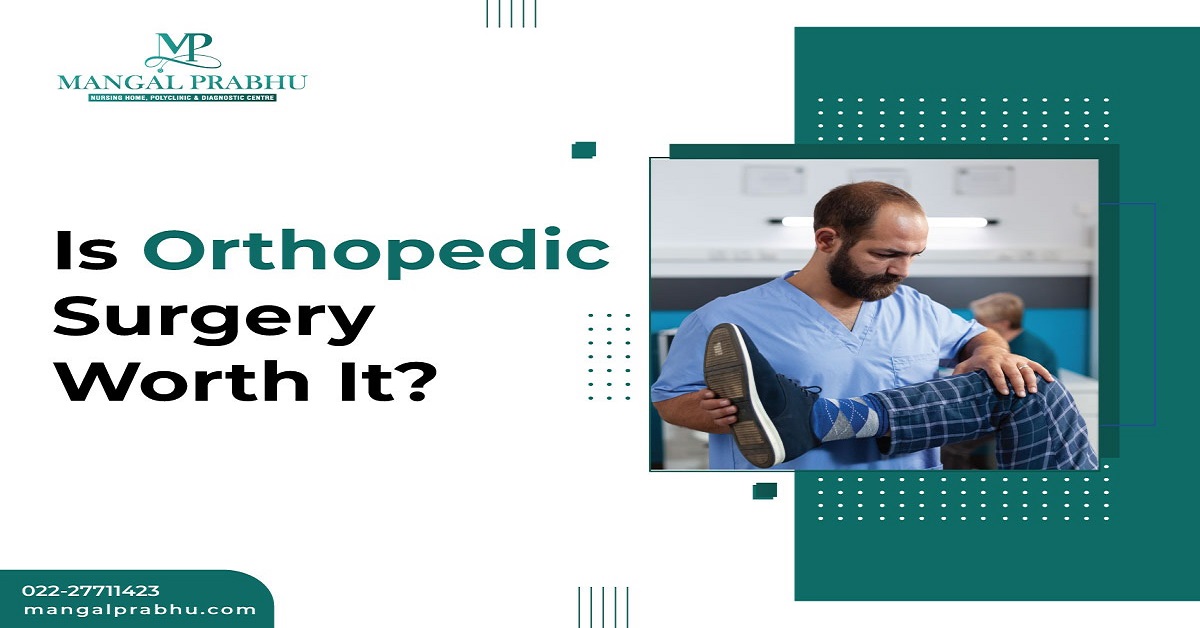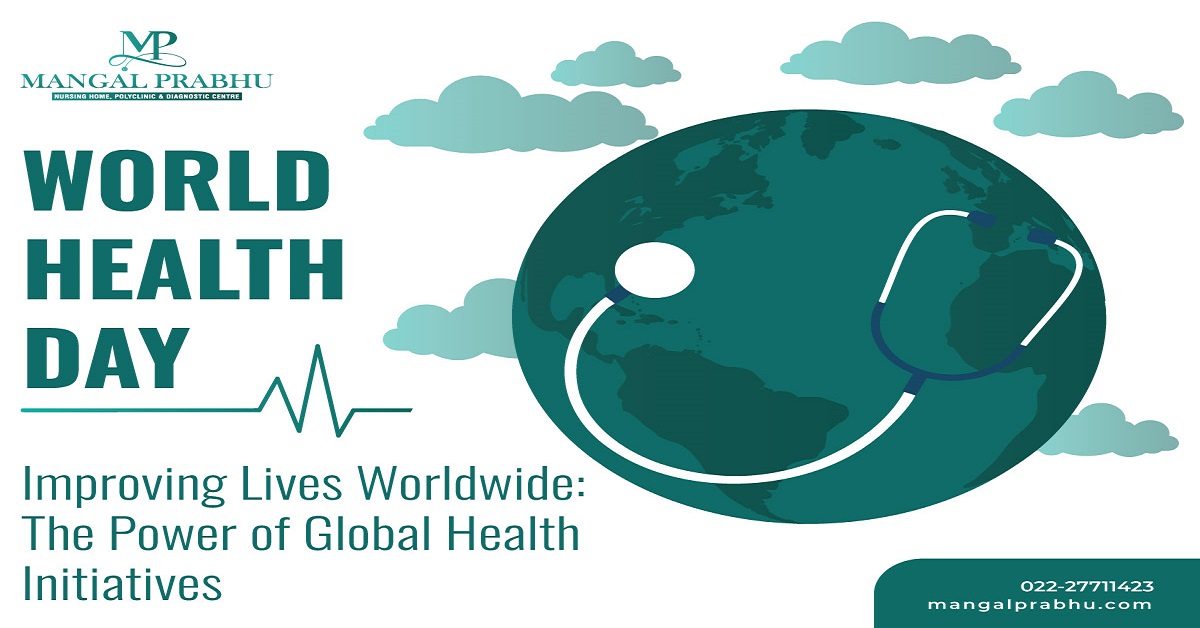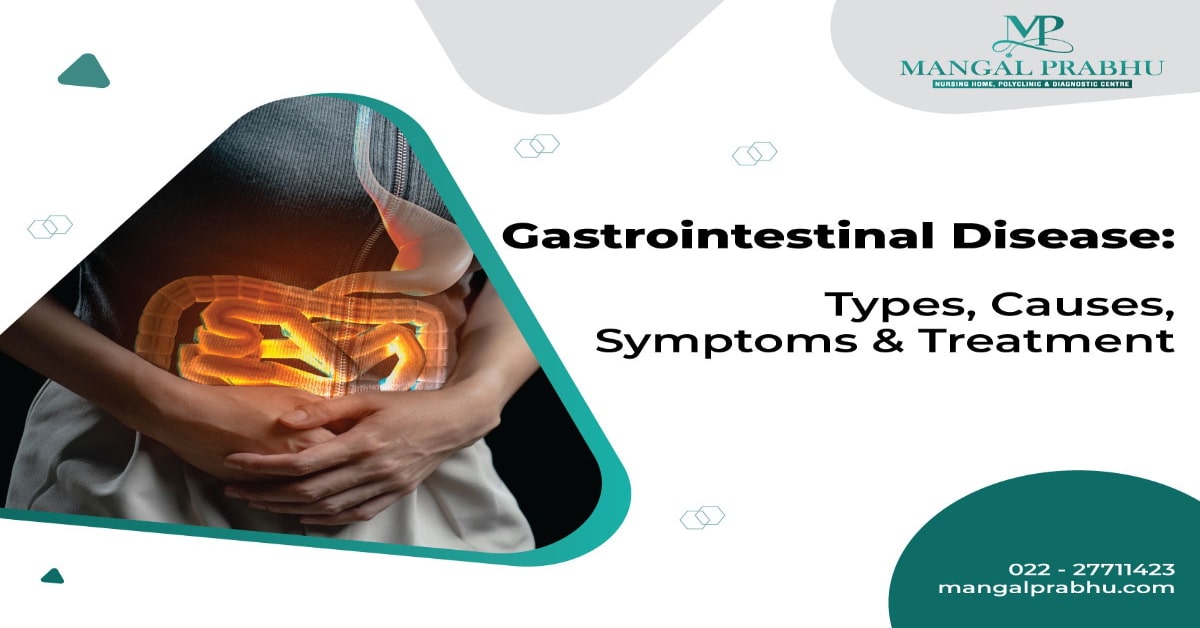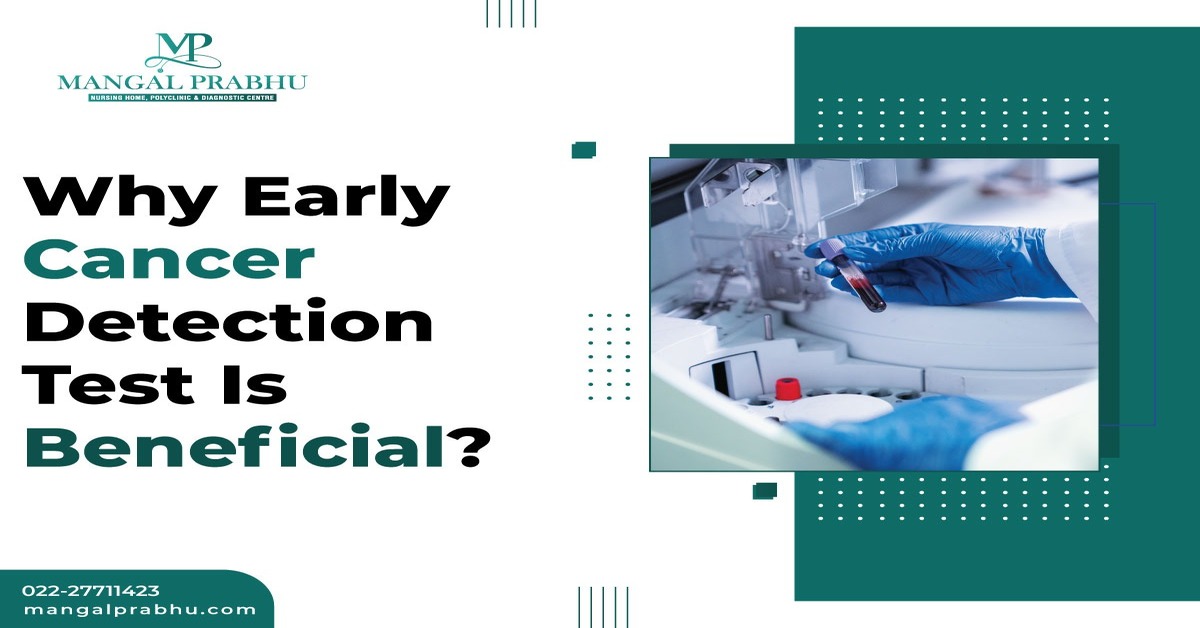
The Pros And Cons Of Chemotherapy: Is It Right For You?
Chemotherapy is the most effective treatment plan for treating and killing cancer cells by preventing their slowing and spreading growth. It is the most common cancer treatment to prevent tumor growth and destroy cancer cells. However, this guide will help you understand the advantages and disadvantages associated with chemotherapy so you can also make the right decision.
What is Chemotherapy & How Does It Work?
Chemotherapy is a kind of cancer treatment that is also known as chemo. It includes various drugs and treatment plans such as immunotherapy, hormone therapy, and targeted therapy against different types of cancer. Chemotherapy can also be paired with radiation therapy to cure cancer and ease its symptoms.
Chemotherapy works by destroying the cancer cells and stopping them from spreading. However, Mangal Prabhu Hospital is the best chemotherapy center in Navi Mumbai and uses the best tools and techniques to provide the fastest and most effective treatment. Their oncologist may use chemotherapy in various ways, including neoadjuvant, adjuvant, palliative, and curative therapy.
The Pros of Chemotherapy – Understanding the Benefits
Chemotherapy is very advantageous for cancer patients. Some of the benefits of this treatment are:
- It kills the cancer cells in the early stages of the disease.
- It reduces the intensity of the tumor before radiation therapy or surgery.
- Chemotherapy helps prevent and slow down the growth of cancer cells.
- Help in fighting the cancer cell, and other treatments work better.
- It made surgery possible by eliminating the cancer’s dead cells and reducing its spread.
Also Read: Chemotherapy: Types, Treatment, And Side Effects!
The Cons of Chemotherapy – Possible Side Effects & Risks
Chemotherapy not only kills cancer cells, but it also slows down the growth of healthy cells. It damages healthy cells and may cause side effects. However, some of the most common disadvantages and side effects of chemotherapy are:
- Hair loss
- Mouth sores
- Nausea
- Fatigue
- Patients must visit hospitals regularly to continue therapy, which can be tiring.
- It may not help all cancer patients.
- The recovery time and effects may differ from person to person.
Deciding Whether Chemotherapy is Right for You
Chemotherapy benefits all cancer patients or people with early signs of cancer but has some potential side effects. However, it would be best to decide and ask your loved ones whether you should start chemotherapy to treat your issue. It is the most effective way to treat cancer and may be very important for patients who do not need immediate treatment, such as prostate cancer or indolent lymphoma.
However, your physician may recommend chemotherapy if there is a sign that your cancer may grow in the future to prevent the cancer cells from spreading, or they may also suggest it if it has already spread to kill harmful cells.
Conclusion
If you have been diagnosed with cancer or it has already spread, it would be best to begin your cancer treatment as soon as possible. However, you can consider the best hematologist oncologist in Navi Mumbai, Mangal Prabhu Hospital, for the best cancer treatment. They offer the highest quality treatment with their standard healthcare plan at an affordable price, so everyone can get the best treatment without worrying about anything.

6 Warning Signs of Breast Cancer
Breast tissue can become cancerous and evolve into breast cancer. Breast cancer develops when the cells there start to divide and grow in an uncontrollable manner, resulting in a tumour or lump. Via the bloodstream or lymphatic system, these aberrant cells can also infiltrate neighbouring tissues or move to other regions of the body.
To increase the likelihood of survival, early detection and treatment of breast cancer are crucial. According to a Cancer Specialist in Navi Mumbai, clinical breast checks, breast MRIs, and other screening procedures can aid in the early detection of breast cancer, when it is most curable.
Depending on the kind and stage of cancer, treatment options for breast cancer may include surgery, radiation therapy, chemotherapy, hormone therapy, or targeted therapy, say the experts in breast cancer treatment in Navi Mumbai.
Also Read: WHAT TO KNOW ABOUT BREAST CANCER?
The following are the 6 types of breast cancer warning signs:
- A bulge or enlargement in the breast or underarm region or close-by alterations in breast size or form
- Nipples that are sensitive or dripping
- Changes in the breast or nipple’s skin tone or texture
- Pain experienced in any breast region
- Breast or nipple swelling or redness
- Palpable Nodule or Lymph Node
Palpable Nodule or Lymph Node
Usually seen in the neck, groyne, or beneath the arms, a palpable nodule or lymph node is a bulge that can be felt or touched on the body. Nodules or lymph nodes that can be felt are frequently the results of an infection, inflammation, or injury, but they can also signal a more serious problem, like cancer.
The lymphatic system, which aids the body in battling illnesses and infections, includes lymph nodes. Little, bean-shaped lymph nodes are filled with immune cells that can assist the body in recognising and combating invading invaders.
The lymph nodes might swell and become palpable when there is an infection or inflammation in the body because they are working to combat the illness. A palpable lymph node, however, may occasionally be an indication of cancer that has progressed from its initial sites, such as breast cancer or melanoma.
It’s crucial to contact your healthcare practitioner for an evaluation to ascertain the cause and, if necessary, proper treatment if you find a palpable nodule or lymph node.
Conclusion:
It’s crucial to remember that not all breast lumps are malignant and that some breast tumours may not even exhibit any symptoms. To find out the cause and, if required, seek treatment, it’s crucial to contact your healthcare physician if you experience any of these warning signs.

CHEMOTHERAPY: TYPES, TREATMENT, AND SIDE EFFECTS!
What Is Chemotherapy?
Chemotherapy is a medical procedure that employs medications to either eliminate or inhibit the growth of cancer cells. It frequently works in tandem with other cancer therapies including surgery or radiation therapy. Chemotherapy medications can be administered orally or intravenously, entering the bloodstream and travelling throughout the body to eradicate cancer cells wherever they may be.
Patients who receive chemotherapy treatments may endure side effects such as hair loss, nausea, vomiting, and exhaustion since these medications can also harm healthy cells. The type and stage of cancer, as well as the patient’s general health and other medical conditions, will determine the precise chemotherapy medications and treatment strategy.
Types of Chemotherapy
Chemotherapy medications come in a wide variety of forms and are categorized in various ways. Below are some of the most typical chemotherapy regimens:
- Alkylating Agents: These medications function by introducing an alkyl group to DNA, which prevents cancer cells from replicating. Cyclophosphamide, chlorambucil, and busulfan are a few examples.
- Antimetabolites: These medications imitate the components of DNA and RNA, disrupting cancer cells’ ability to operate normally. Methotrexate, 5-fluorouracil, and are a few examples.
- Anthracyclines: These medications function by obstructing the activity of an enzyme required for the replication of cancer cells. Doxorubicin and epirubicin are two examples.
- Topoisomerase Inhibitors: These medications prevent the action of topoisomerases, which are essential for DNA replication. Irinotecan and etoposide are two examples.
- Mitotic Inhibitors: These medications act by preventing cell division. Paclitaxel and docetaxel are two examples.
- Platinum Compounds: By attaching to DNA, these medications stop cancer cells from proliferating. Cisplatin and carboplatin are two examples.
- Monoclonal Antibodies: These medicines, which are referred to as targeted therapies, specifically target the proteins on the outer layer of cancer cells. Trastuzumab and rituximab are two examples.
Also Read: What You Need To Know Chemotherapy?
The Stage Of Cancer At Which Chemotherapy Is Used
Depending on the type of cancer and its stage of development, chemotherapy may be administered at various stages of cancer treatment. The Chemotherapy centre in Navi Mumbai states that in order to make a tumour smaller and easier to remove, chemotherapy may occasionally be administered prior to surgery.
Neoadjuvant chemotherapy denotes this. In some instances, chemotherapy may be used following surgery to eradicate any cancer cells that remained and lower the likelihood of the disease returning. The term for this is adjuvant chemotherapy.
For some cancer types, especially those that have spread past their original site, chemotherapy can also be employed as the main treatment. Chemotherapy is used in these situations to kill cancer cells throughout the body and inhibit or stop the spread of the disease.
An oncologist, who focuses on treating cancer, is often part of the healthcare team that decides whether to use chemotherapy and when to administer it. The particular course of treatment will depend on the type and stage of cancer, the patient’s general health, and any other medical disorders.
Treatment Methods Post Chemotherapy
According to an Oncologist in Navi Mumbai, the subsequent course of treatment following chemotherapy is determined by the type of cancer being treated and the patient’s response to the chemotherapy. Chemotherapy may be able to totally eradicate cancer in rare situations, leaving the patient free from further treatment. In some situations, extra therapy could be required to guarantee that every cancer cell is eliminated and stop the disease from coming back. Following chemotherapy, these typical next steps are listed:
- Surgery: To remove the tumour, if the cancer is limited and has not progressed to other body parts, surgery may be advised.
- Radiation Therapy: This involves killing cancer cells with high-energy radiation. It can be used either on its own or in conjunction with chemotherapy or surgery.
- Immunotherapy: Immunotherapy is administering medications that support the body’s immune system in identifying and eliminating cancer cells.
- Targeted Therapy: When used to treat certain types of cancer, targeted therapy includes administering medications that specifically target chemicals or proteins in cancer cells.
- Hormone Therapy: Hormone treatment is used to treat tumours including breast and prostate cancer that are susceptible to hormones. Hormone treatment stops the hormones that promote the growth of cancer cells from being produced or acting, which is how it works.
The type of cancer, the stage of the disease, the patient’s general condition, and other considerations will determine which treatment should be used following chemotherapy. Together, you and your oncologist will create a treatment strategy that is personalised for your unique requirements.

What is Hernia in Women?
What is Hernia and How Does It Affect Women?
A hernia is a disorder that develops when an organ or piece of tissue pushes through a tear or weak area in the surrounding muscle or tissue. This may occur in the abdomen, groin, or diaphragm, among other body regions. Hernias can appear unexpectedly or develop gradually over time.
According to Hernia Treatment Hospital in Navi Mumbai, women can get hernias, however, they do so less commonly than men do. The following are some typical hernias that might affect women:
Common Types of Hernia in Women
- Inguinal Hernias: More frequently seen in men, these hernias develop in the groin region. Yet women can also get inguinal hernias, especially if they have a history of hard lifting or many pregnancies.
- Umbilical Hernias: These hernias are more frequent in women than in males, particularly in those who have had several pregnancies or who are obese. They develop close to the belly button.
- Incisional Hernias: Hernias at the site of previous abdominal surgery, known as “incisional hernias,” might weaken the abdominal wall and increase the risk of hernias.
- Hiatal Hernias: When a portion of the stomach pushes through the diaphragm and into the chest cavity, a hernia occurs. As they age, women are more likely to develop hiatal hernias, which can be accompanied by reflux symptoms.
Also Read: DO I NEED SURGERY FOR HERNIA?
What are the Causes of Hernia in Women?
Hernias happen when a weak area in the surrounding muscle or tissue allows an internal organ or tissue to protrude through. Although hernias are typically associated with men, they can also affect women. Although the causes of hernias in women might vary, the following characteristics are frequently linked to an increased chance of getting one:
1. Childbirth During Pregnancy:
The stress on the abdominal muscles during these processes might weaken the abdominal wall, increasing the risk of a hernia.
2. Obesity:
Having a large waistline or being obese can place additional tension on the abdominal muscles and increase the risk of a hernia.
3. Heavy Lifting:
Frequently lifting weights or objects that are heavy might cause the abdominal muscles to get strained and cause a hernia.
4. Coughing or Sneezing Repeatedly:
Prolonged coughing or sneezing can impose stress on the abdominal muscles, causing them to deteriorate over time.
5. Past Operations:
According to a General Surgeon in Navi Mumbai, women who have had abdominal surgery in the past may be more susceptible to hernias.
6. Genetics:
Due to a family history of the illness, certain women may be predisposed genetically to have hernias.
What is Abdominal Wall Weakness in Women?
Despite being similarly linked, abdominal wall weakness in women is not the same as a hernia. When the muscles and tissues that make up the abdominal wall are weak or injured, it is easier for organs and other tissues to push through the weak spot and produce a hernia.
This condition is referred to as abdominal wall weakness. Although poor abdominal wall tissue can result in the development of a hernia, this is not always the case. But, if unchecked, abdominal wall weakness can eventually raise the chance of developing a hernia. Both disorders can cause pain, discomfort, or an abdominal bulge as symptoms.
What is Diastasis Recti?
The two parts of the rectus abdominis muscle, also referred to as the “six-pack” muscle, split along the Linea alba, the connective tissue that runs along the middle of the abdomen, in a condition known as diastasis recti. Pregnancy, excessive weight gain, or abdominal surgery are all risk factors for this separation. Diastasis Recti is not the same as hernia though it is possible to have both a hernia and diastasis recti, and in certain situations, both diseases may need to be treated surgically.
Conclusion
Women can develop hernias just as frequently as males. Femoral hernias, for example, maybe more common in women than in men because of the differences in their anatomical structures. Due to the stress imposed on the abdominal muscles during pregnancy and after childbirth, women may also be more susceptible to developing hernias.
Women should be aware of the symptoms and signs of a hernia, which include pain, discomfort, and an obvious bulge in the affected area. Early medical intervention can stop the hernia from getting worse and potentially leading to catastrophic problems.
Women’s hernias can be treated surgically or with supporting clothing or belts that can help control discomfort. In general, women can lower their risk of getting hernias and maintain their health and well-being by being aware of the risk factors and taking preventative actions.

Is Orthopedic Surgery Worth it?
What Is Orthopedic Surgery?
Orthopedic is the area of medicine that focuses on the evaluation, treatment, and preventive measures of issues and injuries of the musculoskeletal system, which includes the bones, joints, muscles, tendons, and ligaments that provide support, stability, and movement to the body. Orthopedic conditions can vary from minor injuries, such as sprains and strains, to more severe conditions, such as arthritis, osteoporosis, and degenerative disc disease.
Types of Orthopedic Treatment:
Orthopedic experts, commonly known as orthopedic surgeons are medical doctors who specialize in the diagnosis and treatment of these conditions. They are trained to administer a variety of techniques to treat orthopedic conditions, including non-surgical and surgical approaches. Non-surgical treatments include physical therapy, medications, and orthotic tools, such as braces or casts, that help support and immobilize affected areas in the body. The surgical treatments include procedures such as joint replacement, spinal fusion, and arthroscopic surgery.
According to an Orthopedic Hospital in Navi Mumbai, these procedures are typically used for more severe conditions that do not respond effectively to non-surgical methods. Let us understand if this type of surgery is necessary and if it is worth it.
The decision of whether or not orthopedic surgery is worth it depends on various factors such as the specific condition that is being treated, the severity level of the condition, the patient’s overall health condition and lifestyle, and the potential risks and benefits of the surgery.
Advantages of Orthopedic Surgery:
In many cases, an orthopedic surgery can be highly effective in relieving pain, improving mobility, and restoring function to the affected area. As per an example given by one of the best Orthopedic Surgeon in Navi Mumbai, joint replacement surgery, such as a knee or hip replacement, can be life-changing for people with serious arthritis or joint damage, allowing them to regain mobility and live a higher quality of life.
Risks & Benefits of Orthopedic Surgery:
However, like any surgery, there are risk factors associated with orthopedic surgery, including infection, bleeding, and anesthesia complications. In addition, recovery from orthopedic surgery can be a lengthy process and can require a significant commitment to physical therapy and rehabilitation.
It’s important for patients to weigh the potential risks and benefits of orthopedic surgery and to have realistic expectations about the result of the surgery. People should first gain full understanding and knowledge from their orthopedic surgeon about the procedure, potential risks, and the recovery process.
Conclusion:
In many cases, non-surgical treatments such as physical therapy, medications, and lifestyle alterations can be impactful in managing orthopedic conditions and improving symptoms and surgery may not be required. But, the decision of whether or not orthopedic surgery is worth it is highly dependable on the individual’s condition and such a decision should be made in consultation with a qualified orthopedic surgeon.

Global Health Initiatives Improving Health Around the Globe
Global Health Initiatives are developed with the purpose of making healthcare services accessible to all parts of the world, especially developing nations. This program covers funding for certain ailments, like AIDS, immune diseases, tuberculosis, malaria, etc.
The initiative is changing thousands of lives by making healthcare financially feasible for all families in developing countries, especially ones that are not in a condition to pay their medical bills. It’s a collaboration of different stakeholders around the world to disburse funds to financially-weak economies, among middle and low-income groups.
Types of Global Health Initiatives
An example includes Cervical Cancer Elimination Initiative. It’s achieved by ensuring that 90% of the girls aged 15 years or above are vaccinated. They must be tested for cervical cancer at the age of 35 years and 45 years.
Another example is the Decade of Healthy Aging, which focuses on long-term care for elder citizens. Through this program, WHO aims to provide elders with age-friendly environments and the financial support they need for mental and physical fitness.
Introduced in 2018, the Global Initiative for Childhood Cancer is another famous Global Health Initiative designed to increase the survival rate of children diagnosed with cancer to 60% and improve their quality of life. Through this Initiative, WHO plans on improving the developing nation’s ability to provide children with access to the healthcare system and advanced medical care.
Also Read: 5 FACTORS TO CONSIDER WHILE CHOOSING A RIGHT MULTISPECIALTY HOSPITAL
Challenges of Global Health Initiatives
In the last two decades, we’ve seen significant development in global health initiatives and their impact on developing nations. But with the changes in political and financial landscapes, these initiatives might not prove effective. Despite WHO’s plan to make healthcare services accessible to all, some people from the rural and undeveloped sectors are still struggling with their health issues financially and physically.
Quality healthcare services is still a dream for many parents and children that can’t afford private medical facility. Besides that, the increasing number of global health issues, including noncommunicable diseases, environmental factors, and starvation are presenting new challenges. With these issues, organizations working for global health initiatives need to rethink their roles to contribute to the initiatives more effectively.
Benefits of Global Health Initiatives
Global Health Initiative is making people’s lives easier worldwide. It’s a great source of funding for those who can’t afford healthcare services. The plan covers children, adults, and elders diagnosed with a medical ailment or those at risk of developing a chronic condition.
It spreads awareness about preventable diseases and improves the quality of life of people undergoing treatment. The purpose of these initiatives is not just to provide better healthcare services to the people in developing nations, but to educate people and reduce the number of deaths from preventable diseases.
Final Thoughts
Global Health Initiatives are sponsored by WHO and the partnered organizations that aim to make healthcare available worldwide. While the political and financial challenges might make implementation challenging, these organizations come up with new ways to evolve and improve people’s lives positively.

Gastrointestinal Disease: Types, Causes, Symptoms, and Treatment
What is Gastrointestinal Disease and Who is at Risk?
A gastrointestinal disease is any condition that affects the digestive system. These conditions affect the esophagus, stomach, small intestines, colon, rectum, liver, gallbladder, and pancreas. From mild discomfort to life-threatening complications, these diseases can cause a wide range of symptoms. The likelihood of developing these conditions increases with age, genetics, lifestyle, and diet.
Common Types of Gastrointestinal Disease Include:
1. Gastroesophageal Reflux Disease (GERD):
This disorder causes symptoms like heartburn, regurgitation, & trouble swallowing as acid reflux rushes back up into the esophagus.
2. Inflammatory Bowel Disease (IBD):
A set of long-term disorders, such as Crohn’s or ulcerative colitis, that induce irritation in the gastrointestinal tract. Weight reduction, diarrhoea, and abdominal pain are possible symptoms.
3. Irritable Bowel Syndrome (IBS):
This widespread condition, which affects the large intestine, results in symptoms such as stomach pain, bloating, constipation, and diarrhoea.
4. Celiac Disease:
An autoimmune condition in which the body reacts to the protein gluten, which is present in wheat, barley, and rye. Abdominal pain, diarrhoea, bloating, and weariness are possible symptoms.
5. Gallstones:
Little stones develop in the gallbladder and may result in discomfort, nauseousness, and vomiting.
6. Peptic Ulcer Disease:
An illness characterized by sores growing on the inside of the stomach or intestine, which leads to symptoms like uneasiness, vomiting, and back discomfort.
7. Hepatitis:
Hepatic inflammation is brought on by a virus, alcohol addiction, or other reasons. Fatigue, nausea, stomach pain, and jaundice are possible symptoms.
Most Common Causes of Gastrointestinal Disease:
According to a Gastroenterology Hospital in Navi Mumbai, the following are a few of the typical causes of Gastrointestinal diseases:
1. Infections:
Bacterial, viral, parasitic, and fungal pathogens are the origin of several Gastrointestinal disorders. Examples include Clostridium infection, viral hepatitis, and traveler’s diarrhoea.
2. Inflammation:
Chronic inflammation in the digestive system is the underlying cause of certain gastrointestinal diseases. Such conditions comprise inflammatory bowel disease (IBD), which includes Crohn’s disease and ulcerative colitis.
3. Genetics:
Genetic hemochromatosis and celiac disease are two Gastrointestinal conditions that have a genetic component.
4. Autoimmune Conditions:
Digestive disorders can be affected by autoimmune disorders such as primary sclerosing cholangitis and autoimmune hepatitis.
5. Lifestyle Factors:
The gastrointestinal disease could be exacerbated by poor diet, inactivity, and stress. For instance, consuming a great deal of fat and sugar may make you more likely to get gallstones.
6. Medications:
As a side effect, several medicines might lead to digestive issues. Nonsteroidal anti-inflammatory medicines (NSAIDs), for instance, can result in peptic ulcers.
7. Environmental Factors:
Gastrointestinal disorders can occur as a result of contact with poisons, chemicals, and radiation.
Also Read: 5 FACTORS TO CONSIDER WHILE CHOOSING A RIGHT MULTISPECIALTY HOSPITAL
Symptoms of Gastrointestinal Disease:

1. Abdominal Pain or Discomfort:
This can be dull, acute, or severe, and it can range in intensity.
2. Vomiting and Nausea:
These symptoms and signs can be spurred on by a variety of gastrointestinal disease problems, such as infections, inflammation, and blockage.
3. Changes In Bowel Habits:
Changes in bowel habits, such as diarrhoea or constipation, may indicate a gastrointestinal disorder, such as irritable bowel syndrome (IBS) or inflammatory bowel disease (IBD).
4. Blood In The Stool:
This could indicate an inflammatory bowel disease or a dangerous gastrointestinal disease issue like colon cancer.
5. Bloating and Gas:
These symptoms and signs can be caused by a range of gastrointestinal diseases, such as lactose intolerance, celiac disease, and IBS.
6. Unexplained Weight Loss:
Profound weight loss without a change in diet or exercise routine may indicate a gastrointestinal disorder such as Crohn’s disease or celiac disease.
7. Fatigue:
Inflammatory bowel disease, liver disease, and other gastrointestinal diseases disorders can all manifest as chronic weariness.
8. Jaundice:
Liver diseases like cirrhosis or hepatitis can cause discoloration of the skin and eyes.
Treatment Options For Gastrointestinal Disease:
1. Medication:
According to a General Physician in Navi Mumbai, medication is a common form of treatment for gastrointestinal disease disorders, including antibiotics for infections, anti-inflammatory drugs for inflammation, and acid-blocking therapies for ulcers & gastroesophageal reflux.
2. Dietary Modifications:
In order to cure as well as manage various gastrointestinal diseases, dietary adjustments may be needed. For example, people with gluten sensitivity should keep away from items containing gluten, and those who have lactose sensitivity might have to limit or stay away from dairy products.
3. Surgery:
In some circumstances, Gastrointestinal diseases might require surgery to be treated. Examples include procedures for fixing a hernia, colon removal for colon cancer, and gallbladder removal for gallstones.
4. Increased Physical Activity:
Modifying one’s lifestyle may assist treat several Gastrointestinal ailments. Examples of such adjustments include giving up smoking, lowering stress levels, and increasing physical activity.
5. Endoscopic Procedures:
Gastrointestinal disorders could be identified and managed to utilize endoscopic procedures like colonoscopy and upper endoscopy. For instance, endoscope dilatation can be used to enlarge a narrowed portion of a digestive tract. Polyps may additionally be eliminated during a colonoscopy.
Summary:
Depending on the condition, different variables may lead to gastrointestinal diseases. It’s significant to remember that the underlying reason might not always be apparent for some gastrointestinal diseases, which might have multiple causes or unknown etiology.
Several of the symptoms are not exclusively related to Gastrointestinal Disease. But, it’s crucial to consult a healthcare provider for such an evaluation if you have any gastrointestinal symptoms that are severe or persistent. Gastrointestinal problems can have a variety of therapies, depending on the particular condition and its underlying cause.

Why Early Cancer Detection Test Is Beneficial?
Cancer is a cluster of diseases marked by the uncontrolled growth and expansion of abnormal cells in the body. It is a normal phenomenon for the cells in the body to grow, divide, and deteriorate in a systematic manner. However, in the case of cancer, the normal control mechanisms that modulate cell growth and division are interrupted, resulting in the formation of a group of abnormal cells known as tumors.
Cancer is of several types and they each possess their own unique traits and behaviors. Some grow rapidly and are aggressive in nature, while others grow more slowly and are less likely to spread to other parts of the body. According to an Oncologist in Navi Mumbai, cancer can affect any part of the body, and the symptoms and treatment options are dependent on the location and the type of cancer.
Because of its complex and severe effect on the body, the earlier cancer is detected, the higher the chances of treatment or recovery. Hence cancer detection tests are extremely important in the battle against cancer. By doing so, if detected then the treatment methods can help prevent the spreading of the disease to other parts of the body. Let us look into some important points on why early cancer detection tests can be helpful for us.
Why Early Cancer Detection Tests Can Be Helpful:
1. Better Survival Rates:
Detecting a cancerous cell can significantly increase and improve the survival rates and is more likely to be treated successfully. For example, breast cancer that is detected early has a 99% 5-year survival rate compared to 27% for advanced breast cancer.
2. Availability of Treatment Options:
Early detection of cancer also gives more treatment options. In the early stage of cancer, the treatment procedures can be less intense while in the later stages of cancer, procedures such as surgery or radiation therapy, and chemotherapy may be administered.
Also Read: When To Consult An Oncosurgeon? Do All Cancers Require Surgery?
3. Fewer Treatment Costs:
Early detection can also help in preventing the higher expenditure on treatment. The cost of treating cancer in the early stages is often less expensive as compared to treatment methods in a more severe stage.
4. Better Quality of Life:
Early cancer detection can also lead to a better quality of life for patients. Patients can undergo less invasive treatments and experience fewer side effects, leading to a better overall quality of life.
5. Greater Peace of Mind:
Early detection also provides patients with greater peace of mind. By detecting cancer in its early stages, people have a higher chance of survival, and they may also have decreased fear of relapse or the need for more aggressive treatment in the future.
6. Screening for High-Risk Individuals:
According to an Oncology Hospital in Navi Mumbai, cancer that is detected early through tests is especially important for people with a high risk of developing cancer, due to factors such as the family history of cancer, exposure to environmental toxins, or lifestyle choices such as smoking and overuse of alcohol. Regular screening can help detect cancer in its early stages, allowing for immediate treatment and better outcomes.
Conclusion:
In conclusion, early cancer detection tests can significantly improve survival rates, provide more treatment options, reduce treatment costs, lead to a better quality of life, and provide greater peace of mind. Regular screening for cancer, especially for high-risk individuals, is crucial in the fight against cancer and can help detect cancer in its early stages, when it is most treatable.

5 Factors To Consider While Choosing A Right Multispecialty Hospital
A medical center designated as a multi-specialty facility provides a wide range of healthcare services and treatments in different medical specializations. Specialists and healthcare workers from a variety of specialties, including but not limited to cardiology, neurology, gastroenterology, orthopaedics, urology, oncology, and obstetrics/gynaecology, usually work together in these facilities.
Multispecialty hospitals provide patients with access to a wide range of medical treatments under one roof as part of their holistic approach to healthcare. These hospitals often offer a variety of healthcare alternatives along with cutting-edge clinical equipment and technology.
They might also offer emergency care, outpatient, inpatient, and rehabilitation treatments. Everyone would like to receive the finest treatment possible when it comes to our health, the well-being of our family members, or both. So, it is always vital to do due research and gather information on a hospital or healthcare facility.
Selecting a multispecialty hospital can be difficult, but there are some crucial considerations that can help in choosing the right decision, according to one multispecialty hospital in Navi Mumbai, selecting a multispecialty hospital might be difficult, the following are some key factors that can help in choosing the right choice:
Also Read: Essential Health Screening After 40
Factors That Can Help In Choosing The Right Multispecialty Hospital:
1. Credibility and Certification:
Choose a hospital that is certified by respected organizations and has a solid reputation. The hospital’s compliance with specified standards for safety and quality is ensured by accreditation. By reading internet reviews, requesting referrals from friends and family, or speaking with your primary care physician, you can learn more about the reputation of the hospital.
2. Knowledge and Specialties:
Take into account the medical staff’s knowledge and areas of specialization. Search for a hospital that has a staff of licensed and skilled medical practitioners in the specific specialties that you or your loved one may need. Individuals will be given the greatest care and treatment available as a result of this.
3. Resources and Tools:
Make sure the hospital has cutting-edge amenities and machinery to deliver cutting-edge medical care and treatments. It is crucial to look for cutting-edge surgical techniques, modern diagnostic equipment, and other specialized healthcare centers, suggest doctors in the Best Hospitals in Navi Mumbai.
4. Location and Accessibility:
Choose a hospital that is easily accessible to you and your family, as well as conveniently placed. Take into account the distance to your house or place of employment, the trip time, and the available transportation. Be sure the hospital has plenty of parking and is accessible to wheelchair users.
5. Insurance and Cost:
Verify that the hospital is covered by your insurance and that the cost of your care is within your means. Inquire about the hospital’s billing and payment procedures, as well as any additional charges or concealed expenses. For patients who can’t afford the full healthcare bill, some hospitals may offer financial assistance or payment plans.
Summary:
A multispecialty hospital should be chosen after carefully weighing a number of essential factors, including the hospital’s repute, the credentials, and specialties of its medical professionals, the infrastructure and amenities, its accessibility and location, and its insurance and financial situation.
It’s critical to pick a hospital with a solid reputation, knowledgeable medical personnel, cutting-edge facilities, an ideal location, and an inexpensive price. You may choose the best multispecialty hospital for you or your loved ones by taking these factors into account, guaranteeing that you get the greatest possible medical attention and care.

7 Reasons Your Baby May Need NICU Care
A neonatal intensive care unit (NICU) is a specialized medical unit that provides intensive care for premature or critically ill newborn infants. The NICU is designed to provide advanced medical care for newborns who require specialized attention due to a variety of medical conditions.
In a NICU hospital in Navi Mumbai, a team of highly trained healthcare professionals, including neonatologists, the best pediatricians in Navi Mumbai, nurses, respiratory therapists, and other specialists works together to provide comprehensive care for the newborns in the unit.
Why is the NICU important?
The NICU is equipped with specialized medical equipment, such as incubators, ventilators, and monitors that continuously monitor the newborn’s vital signs, including their heart rate, breathing rate, blood pressure, and oxygen levels. This equipment is used to help support the baby’s development and manage any medical condition they may have.
Newborns who require NICU may have a variety of medical conditions, including prematurity, respiratory distress syndrome, sepsis, congenital heart defects, and other complex medical issues. It also provides support and education for families, including guidance on feeding, care, and development.
Families are encouraged to participate in their baby’s care and to be actively involved in decision-making regarding their baby’s medical treatment. Overall, the NICU plays a critical role in providing specialized medical care and support for newborns who require intensive medical care.
Also Read: Breastfeeding And Your Sleep- How Do You Rest When The Baby Needs You All The Time?
A baby may be admitted to the NICU for a variety of reasons, including:
1. Prematurity:
Babies who are born before 37 weeks of gestation are considered premature and may require NICU care. Premature babies may have underdeveloped organs and systems, making them more susceptible to complications such as respiratory distress syndrome, sepsis, and feeding difficulties.
2. Respiratory Distress:
This can occur in babies who have difficulty breathing on their own, which may be due to underdeveloped lungs, infections, or other respiratory issues that may require NICU care for treatment with antibiotics and monitoring.
3. Birth Defects:
Some babies are born with congenital abnormalities, such as heart defects, neurological disorders, or other genetic conditions, which require specialized care in the NICU.
4. Low Birth Weight:
Babies who weigh less than 5.5 pounds at birth may require NICU care to support their growth and development.
5. Hypoglycemia:
Newborns who have low blood sugar levels may require NICU care to monitor their blood sugar levels and provide treatment.
6. Jaundice:
This is a common condition in newborns, where their skin and eyes may appear yellow due to high levels of bilirubin in their blood. In severe cases, babies may require treatment with phototherapy, which involves exposing the baby’s skin to a special light to break down the bilirubin.
7. Meconium Aspiration:
Sometimes babies may pass stool (meconium) while still in the womb and inhale it into their lungs during delivery. This can cause breathing difficulties and require NICU care.
Conclusion:
Overall, the NICU provides specialized care for newborns who require intensive medical attention due to various medical conditions, and the length of stay depends on the severity of the baby’s condition and their response to treatment.
